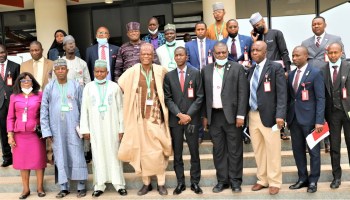
The Economic and Financial Crimes Commission, EFCC, has revealed that 80 percent of the convictions it has made were offences related to cyber security.
The commission disclosed this yesterday at a conference organized by the Cyber Security Experts Association of Nigeria, CSEAN, in Lagos, with the theme ‘’Cyber Secure Nigeria Conference 2021.’’

Chairman of the commission, Abdulrasheed Bawa, said in his opening remarks that the rise in cybercrime in Nigeria was alarming and, therefore, called for rigorous public awareness and enlightenment programmes for organisations.
He said: “I want to authoritatively state that as at September, 2021, the commission has recorded about 978 convictions out of this, 80 per cent is connected to cybercrime and cybercrime related offences.
Bawa, who was represented by the Acting Head of Department, Cybercrime Section, Lagos Zone, EFCC, Mr. Suleiman Jijiwa, said in recent times, the society was rapidly changing to “the e-society” where everything is done electronically.
“The society is increasingly relying on the internet and other tools to engage in communication and conduct business activities among other benefits.
‘’However, this development has made our e-dealings vulnerable to cyber attacks and negative consequences of security threats.
“Cyber security experts believe that financial damages and losses will reach $6, 000, 000, 000, 000.00 by the end of this year. Studies have shown that cyber attacks are among the fastest growing crimes across the globe.
‘’This rise was triggered by the huge financial gains on the side of the perpetrators,” Bawa said.
That is why it is not surprising that the cyber security expert predicted that before the end of 2021, there will be a cyber attack incident in every 11 seconds, this is nearly twice that of the year 2011 which was every 19 seconds.’’
Also speaking, President of CSEAN, Mr. Remi Afon, charged organisations to safeguard their assets while implementing the digital transformation agenda.
Afon noted that digital transformation has resulted in rapid technological advances such as cloud adoption, blockchain implementation, and use of crypto currencies, artificial intelligence, machine learning, Internet of Things, IoT, 5G and data sciences.
Comments